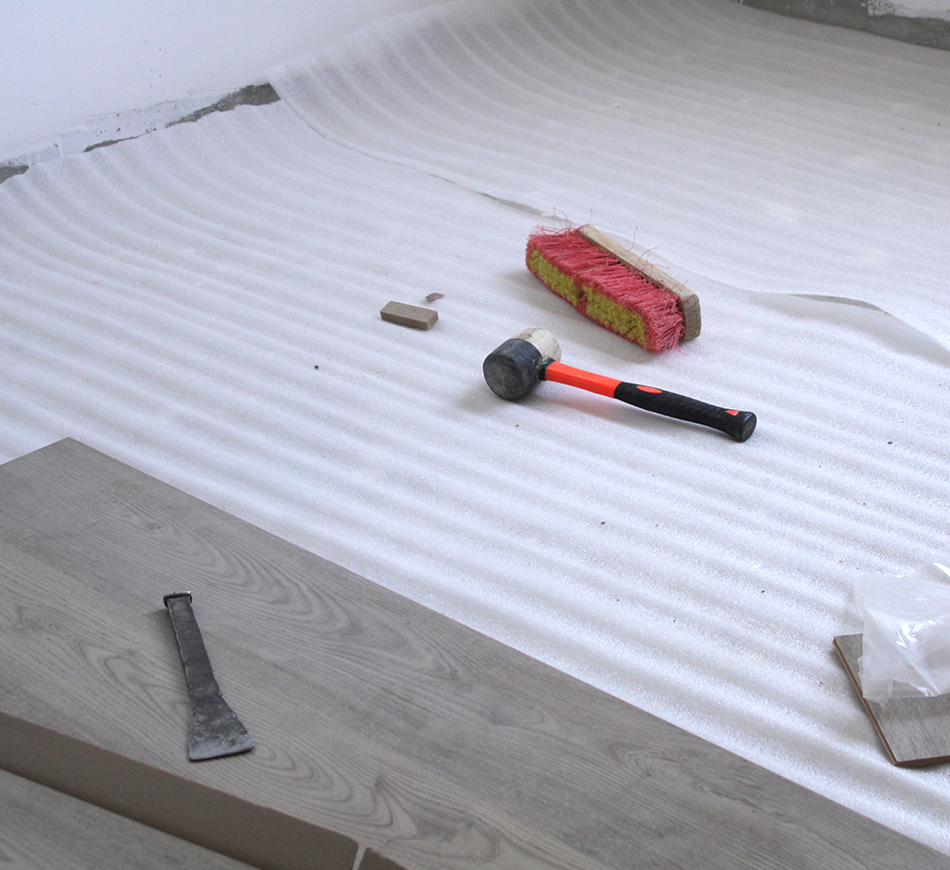Benefits of Floor Underlay in Buildings
Floor underlay, also known as underlayment, is a layer of material that is installed between the subfloor and the final flooring surface. It offers several benefits for different types of flooring installations.
Importance of Floor Underlay in Construction
Noise Reduction
Underlay can significantly reduce impact noise (footsteps, furniture movement, etc.) and airborne noise (voices, music) by absorbing and dampening sound vibrations. This is especially important in multi-story buildings or rooms where noise reduction is desired.
Improved Comfort
Underlay provides a cushioning effect underfoot, making the floor more comfortable to walk on. It helps reduce fatigue and provides a softer feel compared to direct installation on a hard subfloor.
Thermal Insulation
Many underlay materials have insulating properties that help regulate indoor temperature. They can prevent heat loss through the floor, making the room more energy-efficient and comfortable.
Moisture Barrier
Certain types of underlay include moisture-resistant or vapor barrier properties. This helps protect the flooring from moisture that might seep through the subfloor, particularly in environments like basements or areas prone to dampness.
Subfloor Imperfection Concealment
Our Double S ® floor underlay can help smooth out minor irregularities in the subfloor, creating a more even surface for the final flooring material. This is particularly beneficial when installing laminate or engineered wood flooring.
Impact Resistance
Underlay can absorb impact and distribute weight more evenly, reducing wear and tear on the flooring material and extending its lifespan.
Easier Flooring Installation
Underlay can simplify the installation process by providing a stable surface for the flooring material. It can also help prevent creaking or squeaking noises that might occur with direct contact between the flooring and the subfloor.
Hygiene and Allergen Control
Some underlay materials are treated to resist mold, mildew, and allergens. This can improve indoor air quality and contribute to a healthier living environment.
Protection of Flooring
Underlay can act as a buffer between the subfloor and the final flooring, preventing direct contact that could lead to friction-related damage.
Versatility
Our Double S ® floor underlay is available in various materials and thicknesses, making it suitable for different types of flooring such as hardwood, laminate, carpet, vinyl, and tile.
Floor Soundproofing
Certain underlay materials, particularly those designed for soundproofing, can help reduce sound transmission between floors.
Ease of Maintenance
Underlay can create a barrier that prevents dirt and debris from settling directly under the flooring, making cleaning and maintenance easier.
Conclusion
Notably, it’s important to choose the right type of underlay for your specific flooring material and intended use. Each flooring type may have different requirements for underlayment thickness, material composition, and additional properties like moisture resistance or acoustic enhancement. Consulting with the best professionals or manufacturers in Kenya can help you select the most appropriate underlay for your project. Order any insulation material; for instance, roof insulation, wall insulation, flat roof insulation, Damp proof membrane, and floor underlay from us today.
Also, read: Benefits of Flat Roof Insulation Materials


